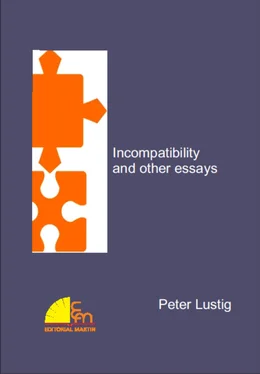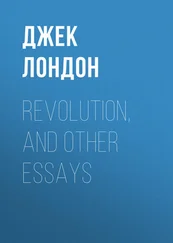In fact, pacifism failed to work because the stage had not yet been reached when militarism would prove futile and politicians were still able to persuade the people that it would suit them to hold on to their faith in bearing arms. As this was no longer true after the fire bombing and the atom bombs of World War II, new ideas had to come to the fore. The first was that war zones were to be kept strictly within regional boundaries. Although, in this way it may have been possible to prevent another world war (so far), other forms of aggression were developed, without actually dealing with the rationale of wiping out dissenters to put an end to opposition. Perhaps this is so because people have not learnt better. Which leads straight to a discussion on education.
A major drawback, in education, has been caused by relying on psychological expediency to control “human nature”, because it was more effective than underscoring principles, as had previously always been done at convent schools, and under the Reformation, covering the religious sphere, in general. Instilling principles was also instrumental to single party politics, leading up to Totalitarianism; even when this implied sustaining atheism, as an act of faith. The same approach to education was adopted by Islam, where principles are upheld against all the odds and failure to honour them amounts to unpardonable frivolity.
In the so called Western liberal democracies, behavioural science has been given preference over the rule of principle, bearing in mind what it contributes to motivational balance and affirmative (individual and group) action. Much as society may have benefited from having helped folks to become adaptable, it has also made them less predictable. One of the consequences of having people branch off in all directions – to honour the freedom they revere, which is described as the be all and the end all of humanity’s pursuits – is a that much greater incoherence in the description of society and a far more diffuse sense of purpose. That is why there are so many incongruous endeavours crisscrossing each others’ paths, and you can have the same people holding forth in one direction, ideologically, while their behaviour points in another, that may be directly opposite. It was mentioned at the beginning of this essay that resorting to psychology to account for “human nature” would inevitably draw attention away from building character upon observance of principle. However useful this may be to open the minds, it cannot help generating a certain amount of confusion and indecision, from which it will be hard for a liberal-minded Westerner to escape; particularly if he is seriously interested in unearthing new facts, away from the prevailing ideological stereotypes. That is where an independent thinker is getting to, when he sees what the world is up against and how urgently something needs to be done about setting guidelines for the immediate future (apart from the political strategies that may be the order of the day).
The suppression of traditional forms of pressure places education at a disadvantage. As a result, alternative approaches have been devised that focus entirely on the level of self-perception attained by each individual, at a particular moment. This amounts to doing away with any form of pre-established planning, though in permanent readiness to come to the aid of a student who wishes to take the next step. The removal of categorizing, within a promotion system, alleviates that many frustrating impositions, with no particular loss to academic progress, other than as refers to the time factor. What happens is that the timing is adapted to the learner, instead of going about keeping the learner to a schedule, for which he may not be ready. It can be said that the individual is being given precedence over the system, while the system is being adapted, in real time, to each learner’s requirements.
At first sight, it would seem that education has taken upon itself the responsibility to perform therapeutically, to make up for the inadequacies of a learner who is being treated as a patient. In fact, this is exactly how education founded upon a rigid schedule was transformed into a de-constructed method of self-help. There was a reason for this: the idea was to help overcome unreadiness caused by variations in maturing. Giving way to biological aspects linked to seemingly unrelated, purportedly moral, traits proved suitable to help youngsters to make the most of their educational opportunities. The time may have come to ask whether it might not make sense to try a similar approach to public affairs, since it cannot be denied that education deserves to be regarded as an initiation to the real world, including the need to learn to face consequences, even though a learner is habitually meant to be spared the extra pain of unmerciful experience.
It may be objected that public affairs have never been exempt from this latter stage. At best, unwanted or undesirable members of a society have been driven into exile; seldom a golden exile. Guantánamo inmates who were never charged, though they must have been held as suspects for a reason, have been unloaded upon countries willing to accept them as victims of political persecution, mainly because the governments of these countries are in sympathy with those very regimes that tolerate or sponsor terrorism, sometimes only to display their unbiased openness. None of the beneficiaries of these reinstatement programs ever admitted any sort of guilt. At the most, they have uttered vagaries about re-grouping for unspecified ends, lending their words a misleading ring of respectability, which becomes self-revealing in the light of the political alignment of the hosting country. That such people as are being let loose upon the world should have ceased to be a menace cannot be taken seriously. But it saves money for the U.S. budget and whitewashes the image of the U.S. government with regard to “human rights”, while the buck is being passed on to those regional enclaves, temporarily considered uncommitted or only marginally hostile (unable to present any real military threat), thereby honouring the policy of circumscribing conflict zones to prevent a hypothetical war from spreading out of control.
Parting from the supposition that a terrorist and a sympathizer with terrorism are one and the same, ideologically and politically, any concerted anti-terrorist action would have to encompass them as such. One can easily imagine the loud protests against undue repression of bystanders. But what if the close personal supervision of the educational project that resorts to the conscientious follow-up of therapy for students were applied to terrorists and their not all that innocent silent counterparts? This is not to say they ought to go about freely, during the process; but exactly the opposite. The main reason why a student responds favourably is because of increased dedication on the part of the teacher. Nothing of the sort can be detected in the disposition of the judiciary, whose main concern is to give the culprit the benefit of the more benign prescription of the law. Actually, the predominant impression suggests that the courts may be trying to unburden themselves of their problem, rather than taking an interest in its outcome. If so, not much can be expected on that score.
It takes vocation to go into teaching. What about social reform? Should all the unemployed or underemployed educators, psychologists, social workers, etc.- who in one way or another might be made available to keep track of thousands of suspected terrorists and their cronies and/or sympathizers that are known to be on the rampage everywhere, always ready to go into action at a moment’s notice – be put to work to keep track of suspects and get things under control, it may no longer be necessary to search passengers at airports, as if anybody were likely to be a terrorist in disguise. Even if the supervision of suspects were left to security forces or the military, the numbers required to carry out this function would add up to little more than a handful, by comparison with having to call up draftees to keep the peace on distant and unsavory foreign fronts. Were the question of human rights brought up, because so many unsentenced suspects were being harassed, the issue would have to be postponed, in keeping with judiciary times, the same as for any ordinary citizens involved in court cases. Not least, it can be said that interference with “human rights”, in the form of surveillance, is a lot less severe and costly than bombing raids and shooting wars; not only because – in the latter case - most of the victims would be innocent civilians, anyway; but because there is no way to tell that random repression was being carried out against the right party.
Читать дальше












